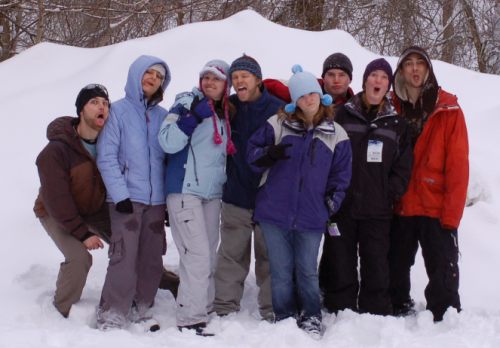 Robert Reich wrote a very surprising book on the interplay of capitalism and democracy. His argument is that we’re seeing a lot of problems in our democracy because we have demanded too much of corporations. If, instead, we strip away some of our fiction that corporations are people, we won’t expect them to be noble, or fair, or honorable.
Robert Reich wrote a very surprising book on the interplay of capitalism and democracy. His argument is that we’re seeing a lot of problems in our democracy because we have demanded too much of corporations. If, instead, we strip away some of our fiction that corporations are people, we won’t expect them to be noble, or fair, or honorable.
Instead, we should see corporations for what they are. They are legal contractual agreements between groups of people in order to generate profits. They have no purpose or concern other than the flow of capital and profit. Just as we don’t ask a gun to distinguish between good directions to shoot in or bad directions to shoot in, we shouldn’t ask corporations to do anything but obey our laws and generate as much money as they legally can.
At the same time, we shouldn’t allow corporations any entrance into democratic policy, since they aren’t people. Corporations shouldn’t have the ability to sue to overturn laws or any rights to free speech. Since they are legal agreements without morals, without any concept of right or wrong, corporations have no business participating in democratic politics. They aren’t, after all, people.
People can say things like: “I quite like cheap sneakers, but I don’t want to allow anyone to employ children to make them.” Corporations can’t do that. So people can get together and decide what rules corporations play by.
Now, this is good. It’s a good thing to have a book that connects the dots between corporate influence on politics, the changing marketplace, the economics of globalization and the legal concepts underlying corporations. I just wish it didn’t take so long. The last chapter, “A Citizen’s Guide to Supercapitalism” contains the only real proposals and it is 16 pages. The previous 208 pages are all lead-in. Frankly, I got it early on. The book didn’t need quite that much paper.
To be fair, I did have some good insights while reading.
- A good portion of the decrease in economic security resulted from container ships and other technological advances which led to a decrease in the security of large corporate profits that supported the deals between labor and management.
- People want to live on charming Main streets, but the people who work there can’t afford to live there. My neighborhood, Cobble Hill, is fantastically charming, but I couldn’t work there and afford to live there. On the flip side, I can afford to pay rent there, but I couldn’t afford to buy there. I earn around 5 times my first salary, but I can’t afford to purchase in the neighborhood I rent in. Oh, how I’ve worked the numbers but it ain’t happening.
- Fascinating nugget: Sam is a City employee, and her pension is administered by William Thompson, the city comptroller. He has heavily invested in the Fremont Mining Corporation which owns open pit gold mines in Papua New Guinea. They seem to dump toxic waste in fragile river ecosystems, which is legal since they seem to bribe the local officials to make it legal. This sucks, and Sam would never support it but Bill Thompson (he’s now a potential mayoral candidate) just is in charge of maximizing Sam’s pension.



